"OCIMF is extremely active across many fronts"
Director's Log

November sees the end of the OCIMF autumn committee season where all our working groups report to their Principal Committee allowing me to report to the Executive Committee (ExCom).
ExCom was held in Dubai on 9 November. I was able to report to ExCom that OCIMF is extremely active across many fronts: working closely with many of our fellow NGOs and progressing the development of our publications and programmes, which are quality benchmarks within the oil and offshore shipping sectors. We discussed CO2, the global sulphur cap and maritime security, among many other issues, and ExCom provided me and our committees with strategic direction for 2017.
You will see an announcement below on the launch of some changes for the Offshore Vessel Inspection Database (OVID). The revised OVID will engage with the broader offshore industry by allowing non-members to request inspections. This is a major step forward in OCIMF’s offshore assurance programme of providing quality vessel inspection reports to offshore hiring entities. Follow the links in the article below for full details.
While I was in Dubai, I also gave the keynote speech and presentation to the 9th ENOC & SIRE workshop. This is the main vetting conference in the Middle East with attendees from around the globe. Representatives from important bodies were present, including the UK’s Marine Accident Investigation Branch, INTERTANKO and Classification Societies.
Stay safe,

Andrew Cassels
Director OCIMF
Do you have news that you'd like to share with our readers? If so email
OVID: new users and a new platform for 2017
OCIMF is making two big changes to the Offshore Vessel Inspection Database (OVID) in January: we are opening up access to non-member companies and we are launching a platform to facilitate new inspection requests.
Previously only OCIMF member companies were able to view Offshore Vessel Inspection Questionnaires (OVIQs), but now non-member offshore companies will be able to apply to register to use the system as OVID Programme Recipients. The decision to open up access was made through consultation between member companies, the Offshore Marine Committee (OMC) and the OCIMF Secretariat. We hope that this will further improve safety in the offshore industry. OCIMF will begin reviewing new applications from 16 January 2017.
At the same time, OVID will launch a new platform: the Offshore Vessel Inspection Request platform (OVIR). OVIR will allow users to submit new vessel inspection requests when an OVIQ is unavailable. OVID Programme Recipients and Technical Vessel Operators can both submit requests and the platform will send notifications to OVID Submitting Members, who can decide whether to commission an inspection.
Full details on who will be eligible for OVID Programme Recipient status, how to register and how the platform will work can be found on the OVID website at ocimf-ovid.org. Questions can be sent to
OVID Inspector Courses - 2017
Our courses for 2017 can be found on our website ocimf-ovid.org.
If you are interested in enrolling on either a New Inspector or Refresher course, or have any queries about the courses, please email
South and Central America Inland and Coastal Barging Focus Group
The 6th meeting of the South and Central America Inland and Coastal Barging Focus Group (SCAICBFG, previously called the South and Central America Cat3 Focus Group) was hosted by Shell in Rio de Janeiro from 26 to 27 October.
Ten members and one guest attended. The meeting covered a wide range of agenda items, including:
- Conversion of barges to closed loading.
- Review and testing of new Barge Particulars Questionnaire/Barge Inspection Questionnaire (BPQ/BIQ).
- Regional CAT3 Training Course.
- Review of regional Inspector training and Accreditation Guidelines.
- Barge Reports Feedback update.
- Review of revised terms of reference.
- Barge safety matters, relevance of the International Safety Guide for Inland Navigation Tank-barges and Terminals (ISGINTT).
- Open collaboration with North America Inland and Coastal Barging Focus Group (NAICBFG).
- OCIMF management of regional CAT3 Audited Inspections.
- Endorsement of unique International Maritime Organization (IMO) number scheme.
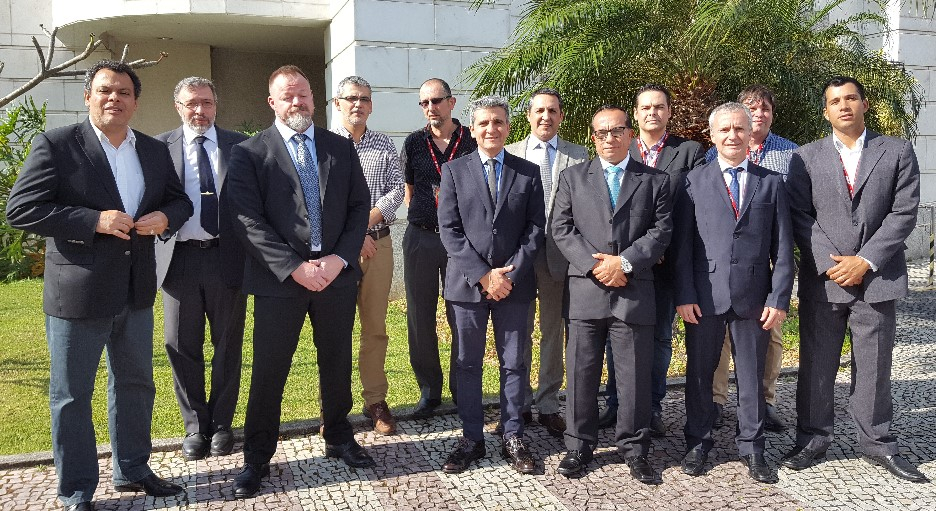
The South and Central America Inland and Coastal Barging Focus Group. From left to right: Alfeu Alcantara (Shell); Roca Fabian (YPF); Patrick McGroggan (OCIMF); Jorge Fernandez (Repsol); Pablo Arellano (Shell); Alejandro Chillemi (Axion); Juan Faggioli (Axion); Jorge Palomino (Repsol); Ricardo Ramos (Braskem); Falvaio Marquez (Pampa); Gustavo Menezes (Petrobras); Julios Mattos (Petrobras).
Learning about the IOPC Funds
The International Oil Pollution Compensation (IOPC) Secretariat hosted a training course for OCIMF members at the International Maritime Organization (IMO) in London from 15 to 17 November.
The IOPC Funds provide financial compensation for oil pollution damage that occurs in the territory of Fund convention Member States, resulting from spills of persistent oil from tankers. The course was designed to increase the understanding of the role of the IOPC Funds and to improve familiarity with the International Group of P&I Clubs and the IMO.
For the first two days, IOPC Secretariat explained the purpose, background and legal framework of IOPC Funds and delivered presentations on contributions and the types of claims covered by the regime, including environmental impacts, onshore and offshore clean-up response, fisheries, tourism and property damage.
The third day was dedicated to an interactive exercise. The group was split in two and presented with a hypothetical oil spill. Both groups were required to use what they learned in the previous two days to mitigate the spill, responding to real-time developments, and to put together a claim that would be admissible by the IOPC Funds.
OCIMF is very thankful to the IOPC for hosting such a professional course for the OCIMF membership. Any OCIMF member who may wish to attend such an event in the future should register their interest with Joanna Bradley –
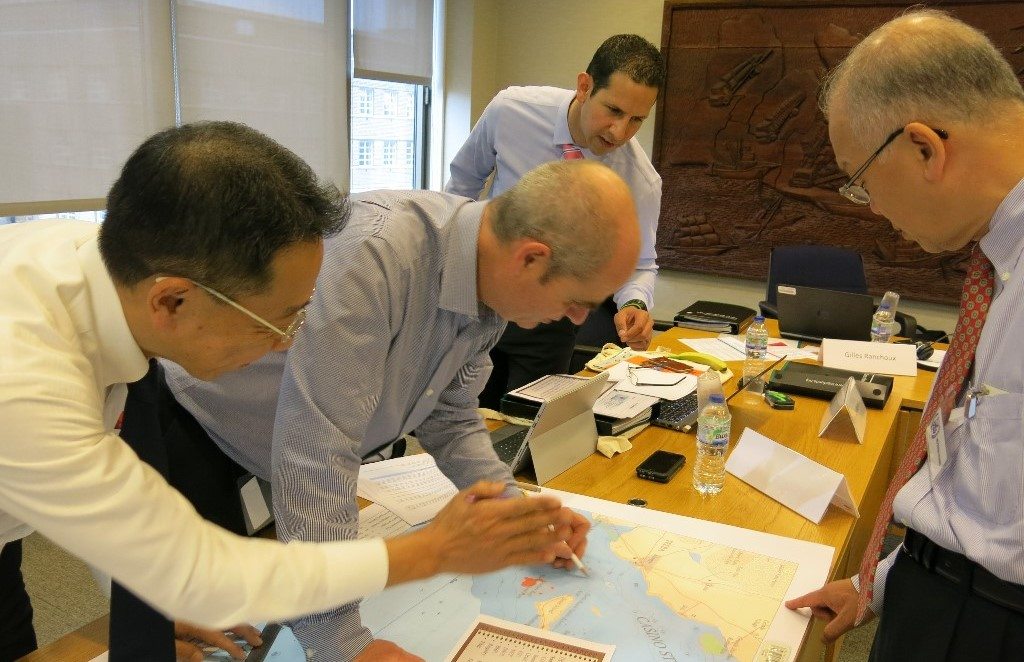
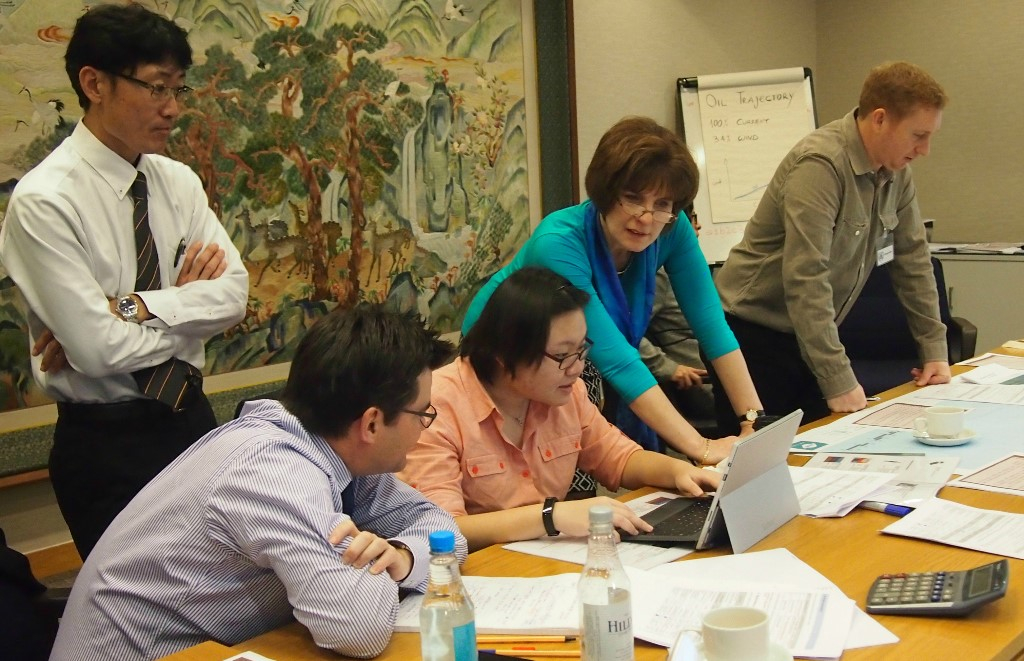
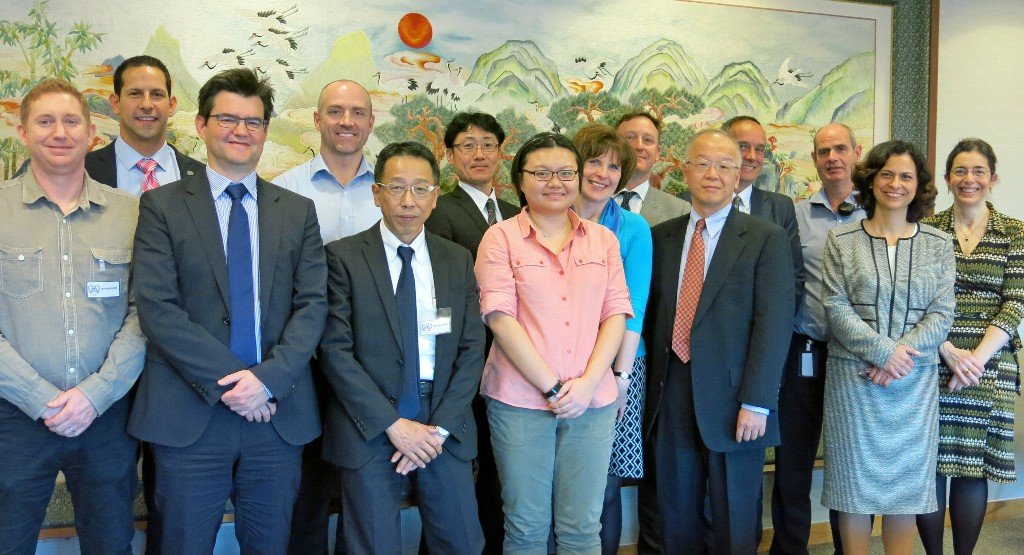
From left to right: Peter Hawkin (Maersk); Joe Megeed (OCIMF); David Fairbairn (TOTAL); Jodi Nypuik (Shell); Akihito Otake (Idemitsu); Fumio Nakano (Tonen); Xiang Xin Ng (Shell); Carol McLeod (BP); Mark Homan (IOPC Claims Manager); Mr Keizo Atsumi (PIMA); Jose Maura (IOPC Director); Gilles Ranchoux (Shell); Liliana Monslave (IOPC Head of Claims); Chiara Della Mea (IOPC Claims Manager).
Human Factors Focus Group
A combined meeting of the Human Factors Focus Group (HFFG) and the Human Factors and Mooring Design (HFMD) working group was held on 14 November at the OCIMF offices in London.
HFFG is concerned with strategic planning for human factors, ensuring a thread is woven through all future OCIMF work and giving guidance to any human factors working groups in place at any time. This was the first meeting of the focus group and the first real meeting of HFMD to consider how to address human factors and mooring design as part of the review of the Mooring Equipment Guidelines (MEG).
The meeting was attended by four members (Maersk, Shell, ConocoPhillips and Primorsk), who were joined by representatives from industry (SIGTTO and the Shipbuilders Association of Japan). Carl Henrickson (Shell) kindly volunteered to act as temporary Chair for both groups until a permanent Chair is chosen. All attendees offered valuable input from a variety of perspectives, and were able to agree on a way forward for the MEG revisions.
Meeting with Petronas Marine Group
OCIMF Deputy Director Jeremy Hudson met with members of the Petronas Marine group to discuss OCIMF updates and current priorities, along with a general discussion about vetting and maritime assurance.
The meeting took place in Kuala Lumpur, Malaysia, on 16 November.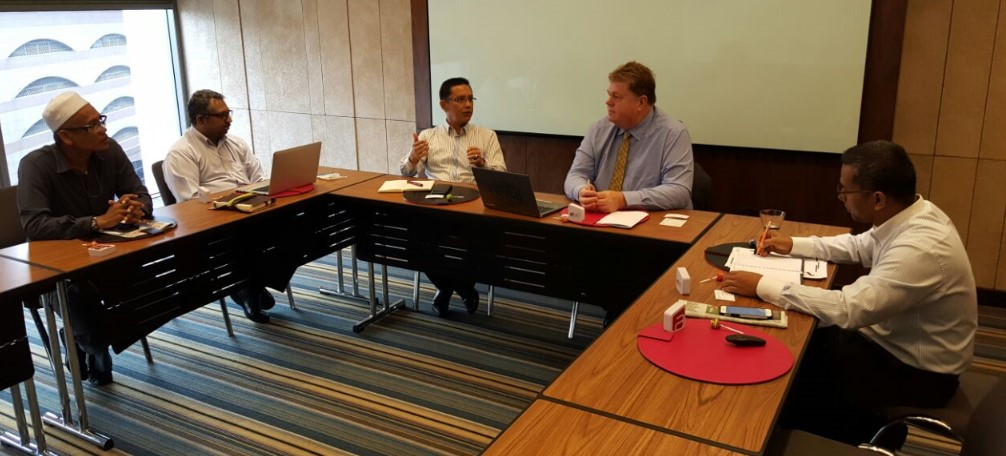
Jeremy Hudson meets with members of Petronas Maritime Services Sdn Bhd (PMSSB). From left to right: Mohd Thani Halim (PMSSB, Marine Operation); Siva Kumar Subramaniam (PMSSB, Offshore Inspection); Mohd Halim Saidi (PMSSB, Maritime Services); Jeremy Hudson (OCIMF, Deputy Director); Ku Azizan Ku Sulong (PMSSB, Maritime Services).
Support for Nigerian piracy survivors
The International Seafarers Welfare Assistance Network (ISWAN) has been working with the Nigerian National Seafarers Welfare Board and Seafarers UK to help survivors of piracy in Nigeria.
ISWAN's Maritime Piracy Humanitarian Response Programme (MPHRP) has recruited a social worker to help Nigerian seafarers and their families cope with the after-effects of a piracy attack and to set up capacity to offer a similar level of support for foreign seafarers.
"Nigeria has suffered from a terrible reputation for kidnap and robbery" said Roger Harris of ISWAN. "The ISWAN programme is designed to start building something positive for the welfare of seafarers."
OCIMF members who are working in Nigeria and the Gulf of Guinea region are invited to contact Roger Harris at ISWAN (
For further information please visit: seafarerswelfare.org/piracy/mphrp portwelfare.org
